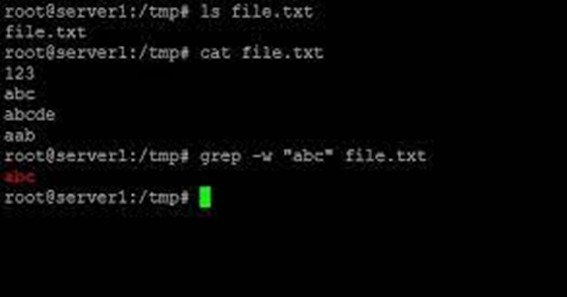When scripting in Unix-like environments, combining grep with wait can sometimes lead to unexpected delays. Understanding the interplay between these commands is crucial for optimizing script performance.
Understanding the Delay
1. Buffered Output
By default, many commands includinggrep, use buffered output. This means they collect data in chunks before displaying it, which can cause delays in real-time data processing. When it wait is used, it might be waiting for a process that hasn’t flushed its output yet, leading to perceived slowness.
2. Resource-Intensive Operations
If grep Searching through large files or directories, especially with complex patterns, can consume significant system resources. This heavy load can delay the completion of the grep process, causing the script wait to hold up the script longer than anticipated.
3. Inefficient Scripting Practices
Using constructs like grep "pattern" file | wc -l instead of the more efficient grep -c "pattern" file can introduce unnecessary overhead. Such practices can slow down the grep process, subsequently affecting the wait command.
Optimization Techniques
1. Use grep -c for Counting
Instead of piping grep to wc -l, use the -c Option to count matches directly:
This reduces the need for an additional process, enhancing performance.
2. Set LC_ALL=C for Faster Processing
Locale settings can impact grep‘s performance. Setting LC_ALL=C forces grep to use the default C locale, which is faster for ASCII text:
This approach can significantly speed up searches, especially in large files.
3. Avoid Unnecessary Piping
Each pipe in a shell script introduces a new process. Minimizing the use of pipes can reduce overhead. For instance, instead of:
Use:
This eliminates the unnecessary cat process.
4. Limit Search Scope
When using grep Recursively, specify file types or directories to narrow the search scope:
This prevents grep from scanning irrelevant files, saving time.
5. Use stdbuf to Adjust Buffering
To handle buffered output, stdbuf can be used to modify the buffering behavior:
This sets line buffering, allowing grep to output results more promptly.
Frequently Asked Questions
1. Why does grep seems slower when used with wait In scripts?grep might be processing large files or waiting to flush its buffered output, causing wait to hold up the script longer.
2. How can I make grep faster in my scripts?
Use efficient options like -c For counting, set LC_ALL=C for faster processing and to avoid unnecessary pipes.
3. What does setting LC_ALL=C do?
It sets the locale to the default C locale, which speeds up text processing by simplifying character classification.
4. Can adjusting buffering improve grep‘s performance?
Yes, using tools like stdbuf to modify buffering can make grep output results more promptly.
5. Is there an alternative to grep for faster searches?
Tools like ripgrep or ag (The Silver Searcher) are designed for faster searching, especially in large codebases.
Understanding why grep takes longer when used with wait allows for more efficient scripting. By optimizing grep usage and being mindful of system resources, scripts can run more smoothly and efficiently.










